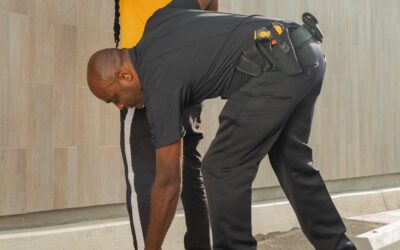You work hard. Now get ready to work harder to prepare to give more.
In Michigan, police can take your dashcam footage in specific situations, primarily when they believe it could serve as evidence in a criminal investigation.
Michigan law permits officers to seize personal property, like dashcam footage, if they have probable cause, a warrant, or if exceptions to the warrant requirement apply.
Here’s a breakdown of how and when police can take and use dashcam footage.
Legal Basis for Seizing Dashcam Footage
Under the Fourth Amendment to the U.S. Constitution and Article I, Section 11 of the Michigan Constitution, searches and seizures are generally considered unreasonable without a warrant.
However, there are several exceptions that allow police to seize dashcam footage without first obtaining a warrant:
-
Probable Cause with a Warrant: Police typically need a warrant based on probable cause to seize dashcam footage. The officer must convince a judge that the footage likely contains evidence of a crime. Under MCL 780.651, Michigan law provides procedures for issuing search warrants for personal property believed to contain evidence of criminal activity.
-
Consent: If you voluntarily hand over your dashcam or footage, the police do not need a warrant. Consent is a common way police legally acquire dashcam recordings.
-
Exigent Circumstances: Police can seize dashcam footage without a warrant if there’s an immediate threat of evidence destruction or if a delay might harm others or impede justice. Exigent circumstances might apply in cases like drunk driving or hit-and-run incidents where the footage could be overwritten or lost.
-
Search Incident to Arrest: If you’re lawfully arrested, officers may be able to seize property within your immediate reach, including dashcam footage, to prevent evidence tampering. The U.S. Supreme Court’s decision in Arizona v. Gant (2009) established guidelines for searches incident to arrest, emphasizing a connection between the arrest and the evidence sought.
Using Dashcam Footage as Evidence
Once seized lawfully, dashcam footage can be used as evidence against you in court. Courts allow video footage as a form of evidence if it is authentic and relevant to the case. For instance, in People v. Wood (Mich. App. 2018), dashcam footage from a police vehicle was successfully used to support DUI charges, setting a precedent for its evidentiary value.
Legal Counsel and Your Rights
When facing legal challenges, particularly in criminal cases, it is advisable to seek legal counsel immediately.
An experienced attorney can provide guidance on how to navigate interactions with law enforcement while safeguarding your constitutional rights.
Since 1993 our expert legal defense in navigating criminal law matters and protecting your constitutional rights are what we eat for breakfast everyday.
Contact Komorn Law PLLC if you’re ready to fight and win.
Research us and then call us.
Other Articles
I am going to Canada – Can I bring my cannabis?
Borders and Cannabis and MoneyFerengi Rule of Acquisition #41. Profit is its own reward.If you bring your own cannabis to Canada. How does the Canadian government profit? They don't so they will punish you if you get caught. It's simple. It's about the money. That is...
Squatters in Michigan
SquattersSquatting, in one definition is the unauthorized occupation of a property, can be a frustrating ordeal for property owners in Michigan. Understanding the relevant laws and procedures is crucial for regaining possession of your property.Squatting vs. Adverse...
Vehicle Forfeiture in Canada – The Process of Taking
Thank You... and have a nice day eh!Disclaimer: We are not Attorneys in Canada. This is an article of information obtained from various sources and presented here. We can only assume they are accurate. If you ever find a reason to go to Canada and need a lawyer...we...
People v Williams Michigan COA – Police CPL Check
People v WilliamsMichigan Court of AppealsNo 365299 (04/18/24) MCL 28.425f permits a police officer to ask a person observed to be carrying a concealed weapon to produce their concealed pistol license (CPL) at any time and for any reason. Makes possession of a...















